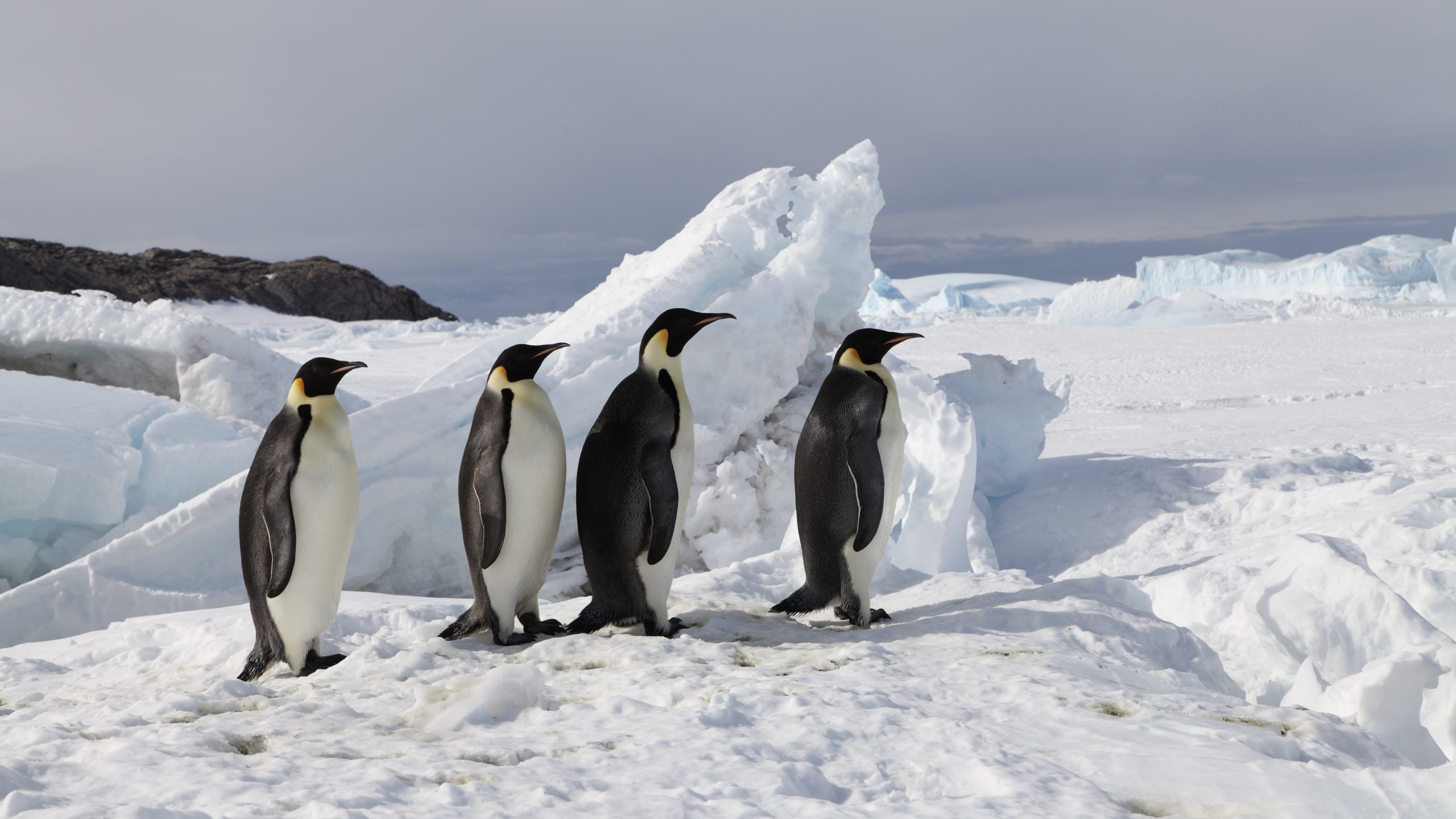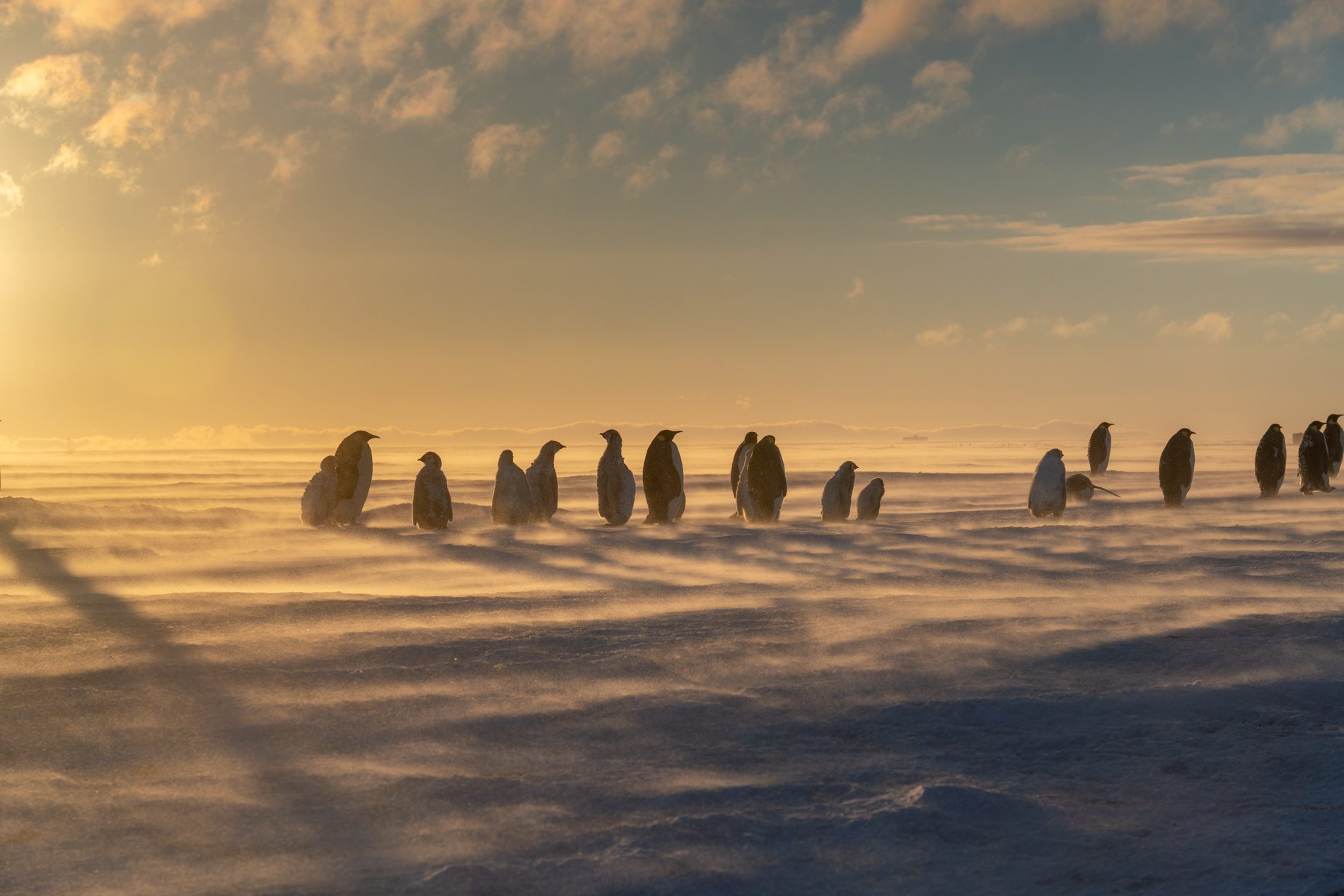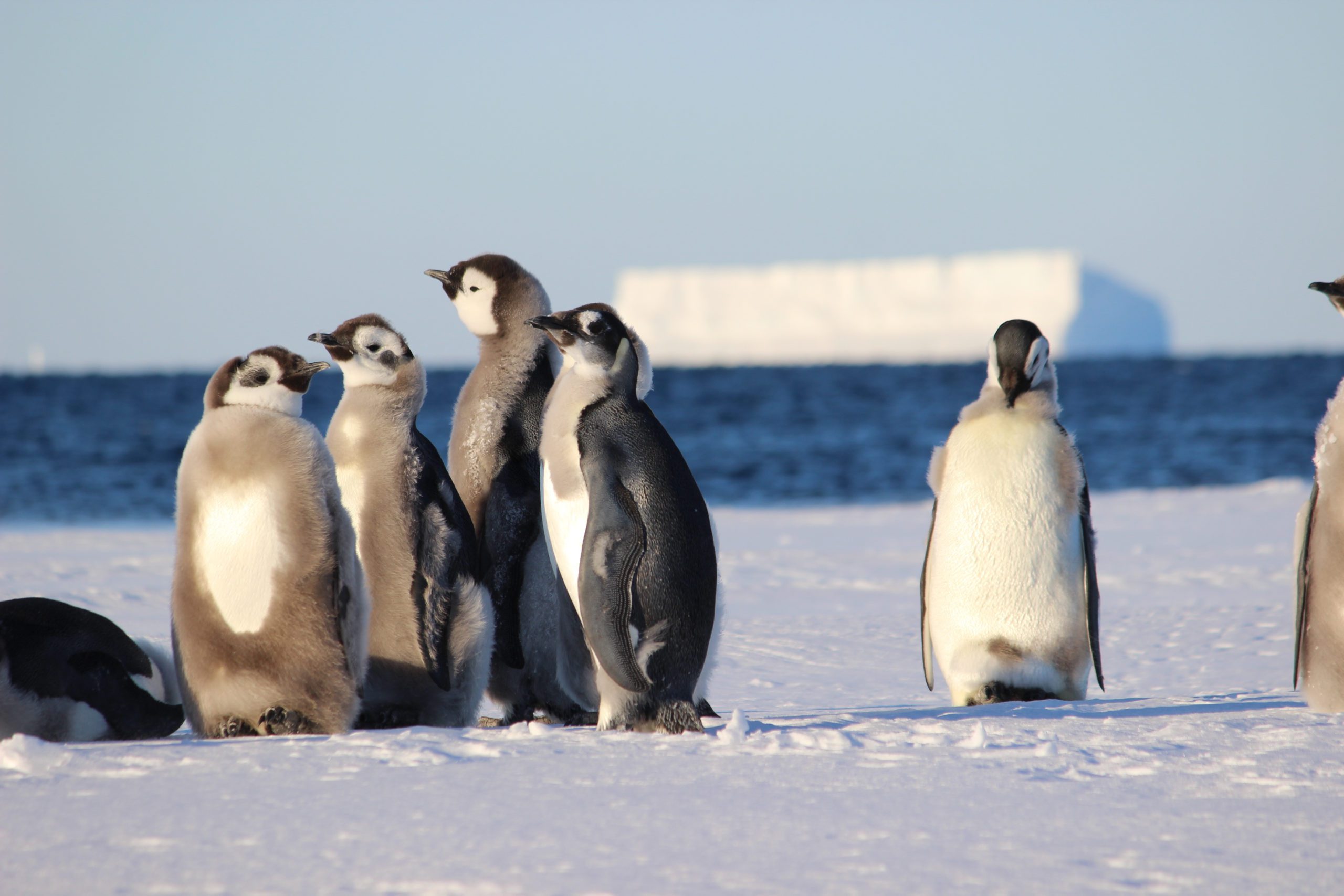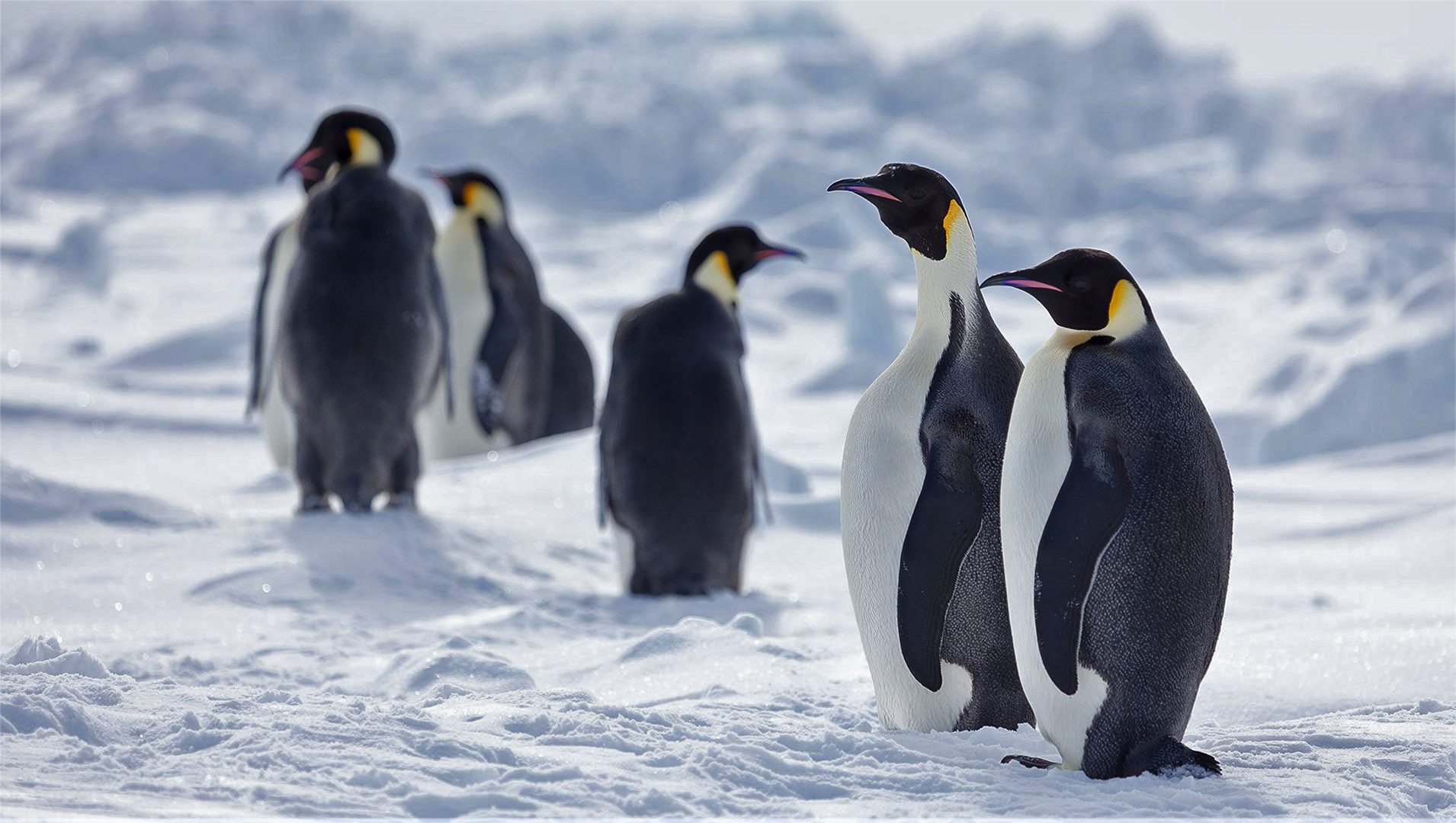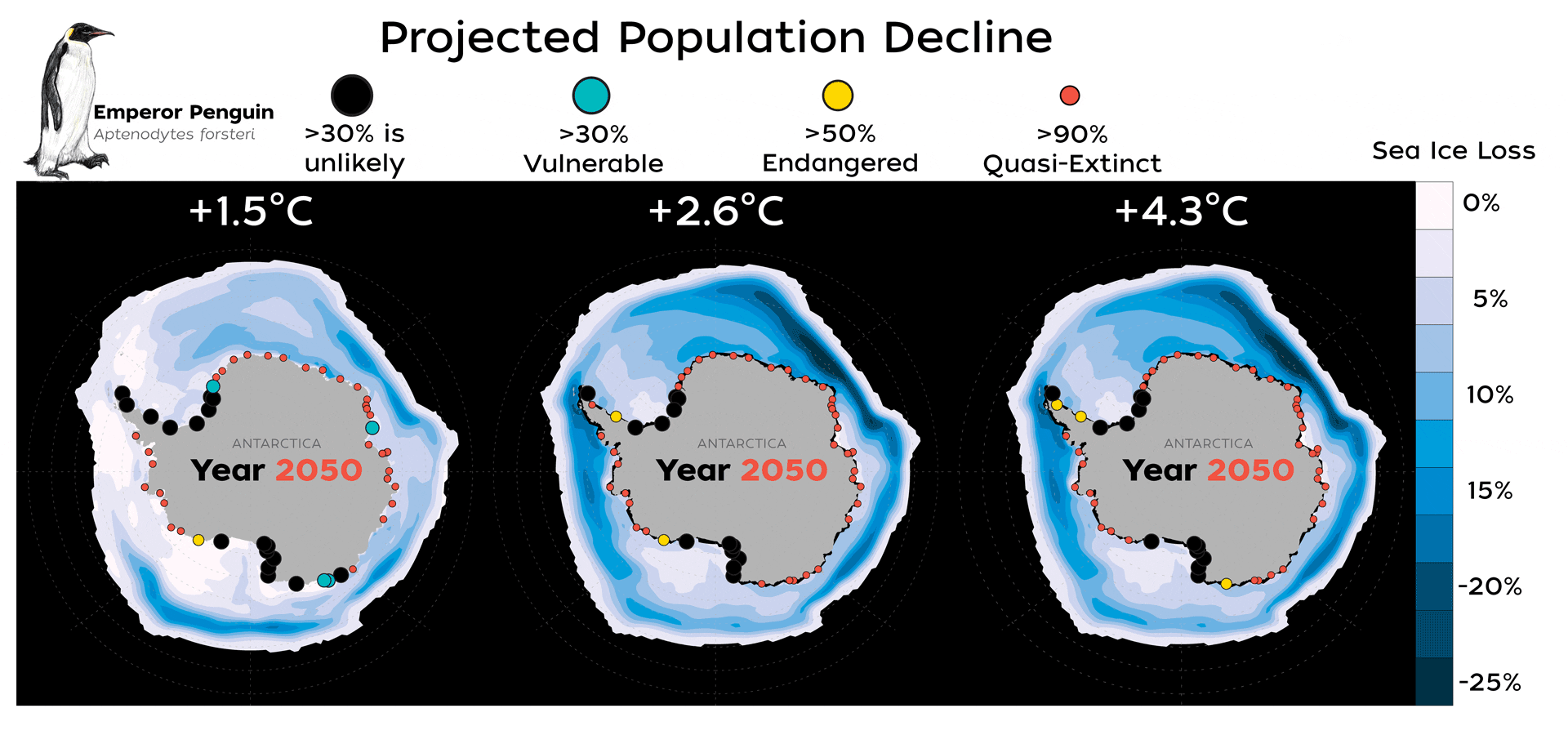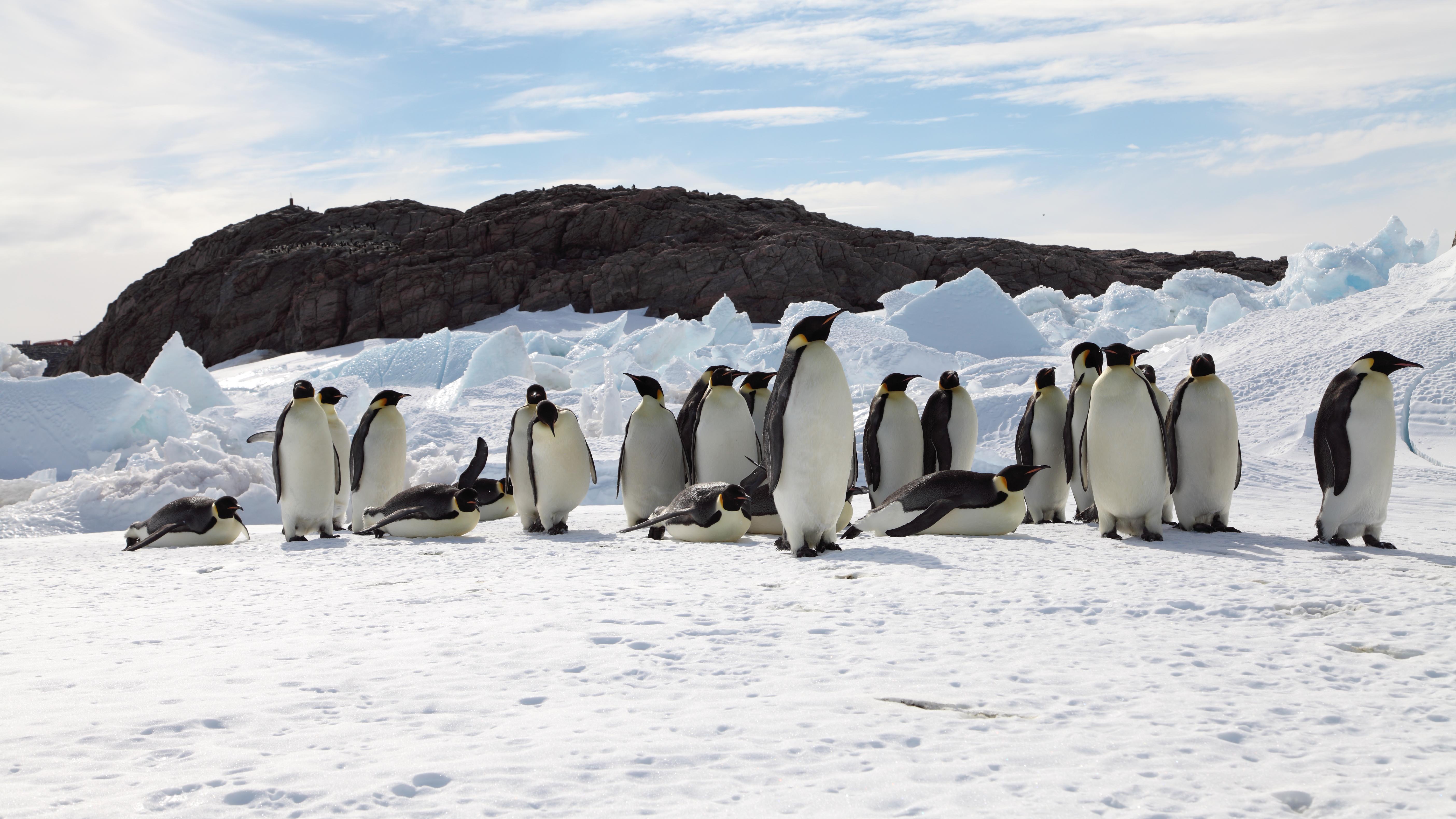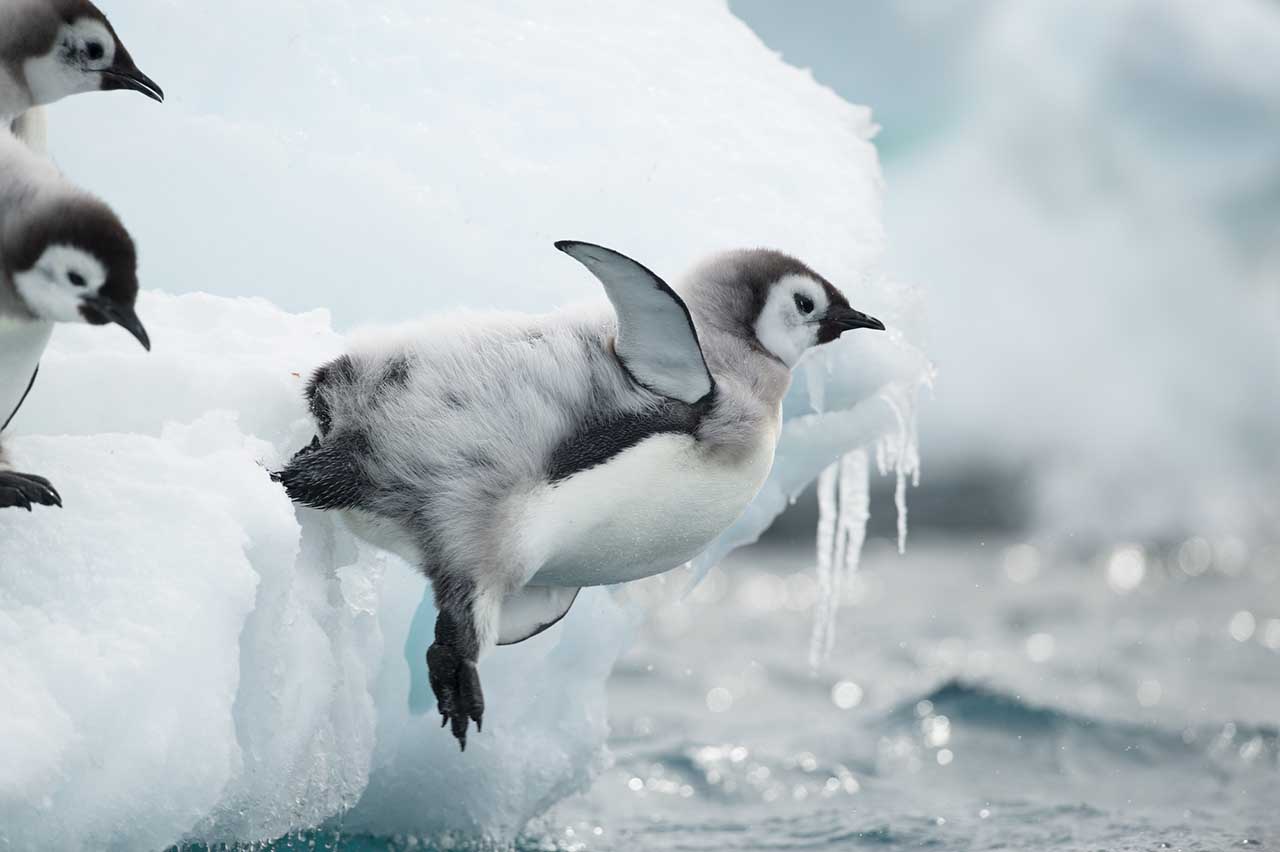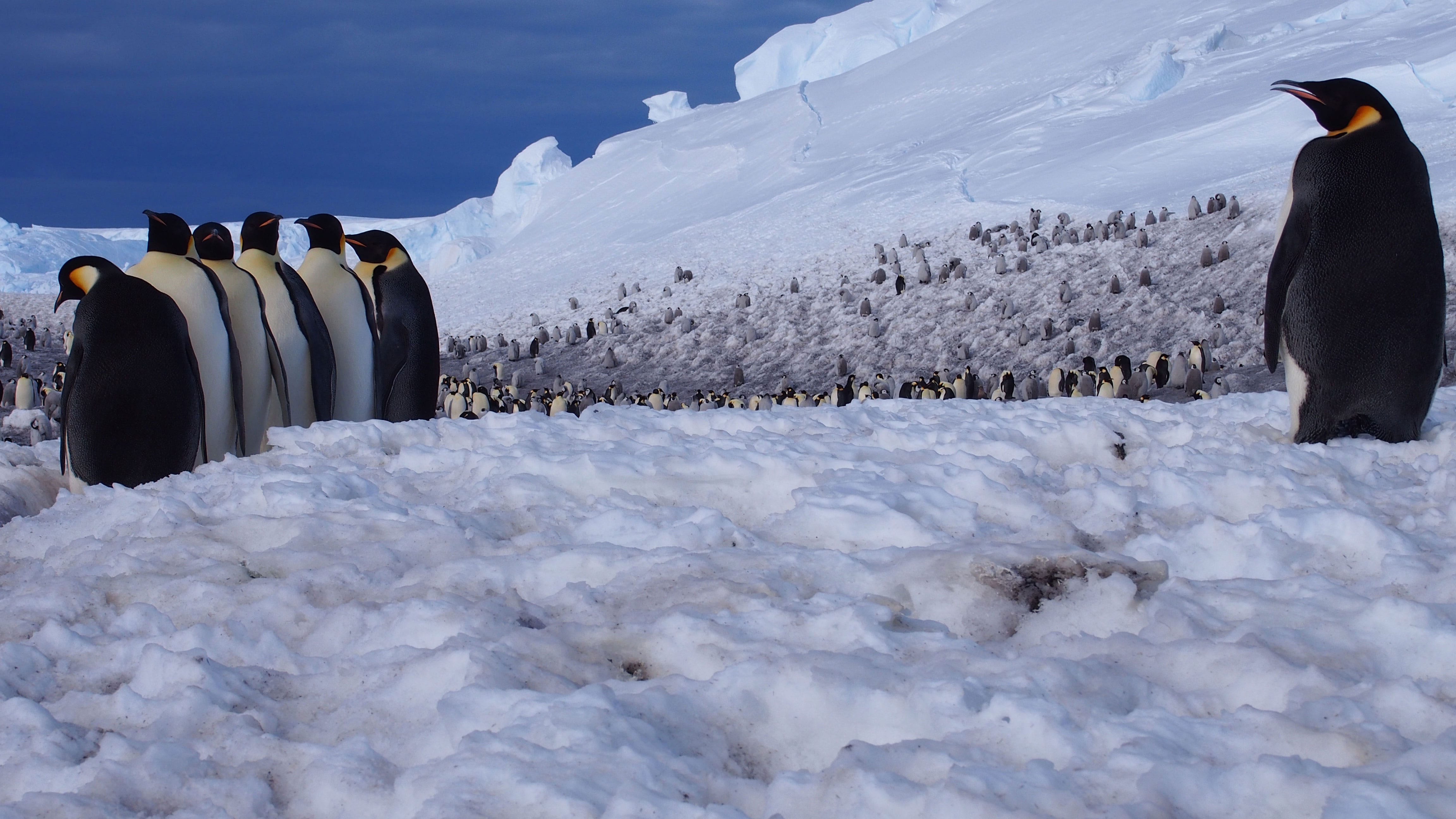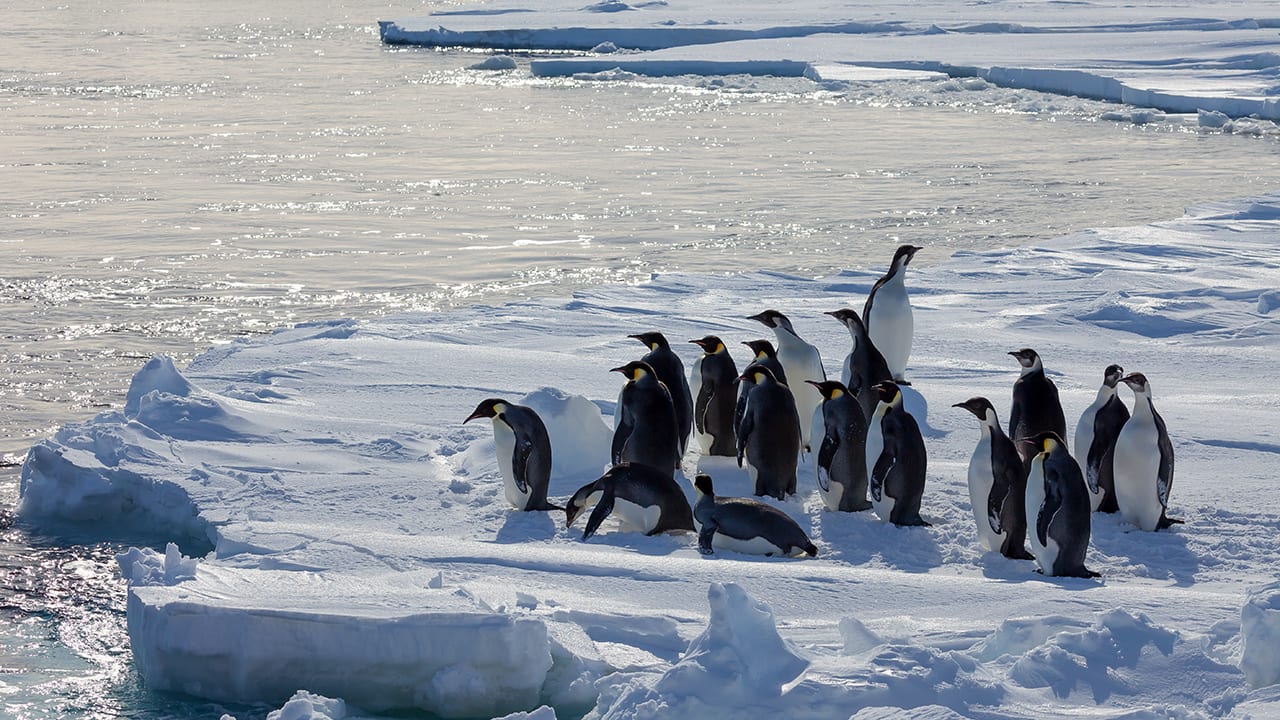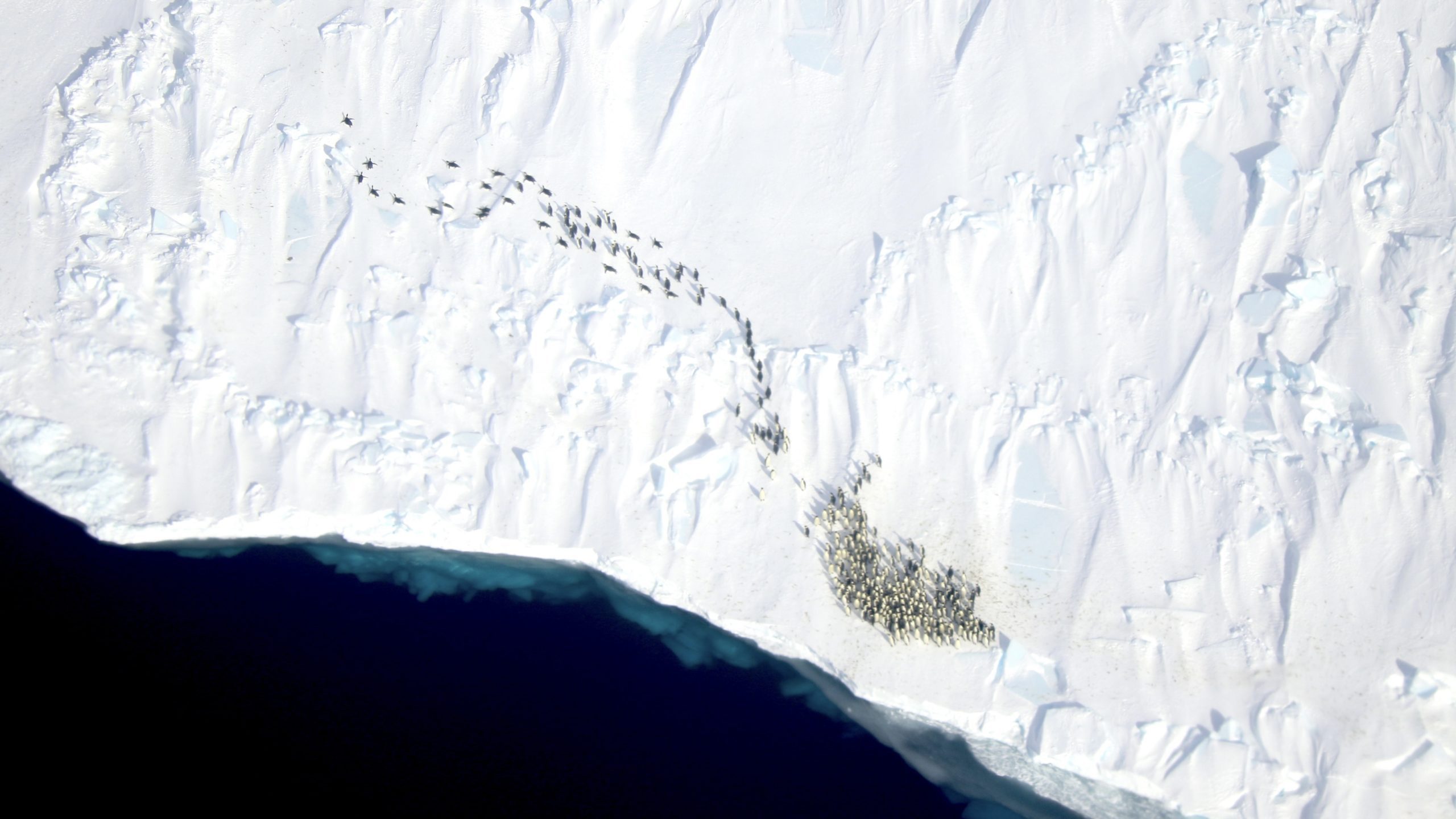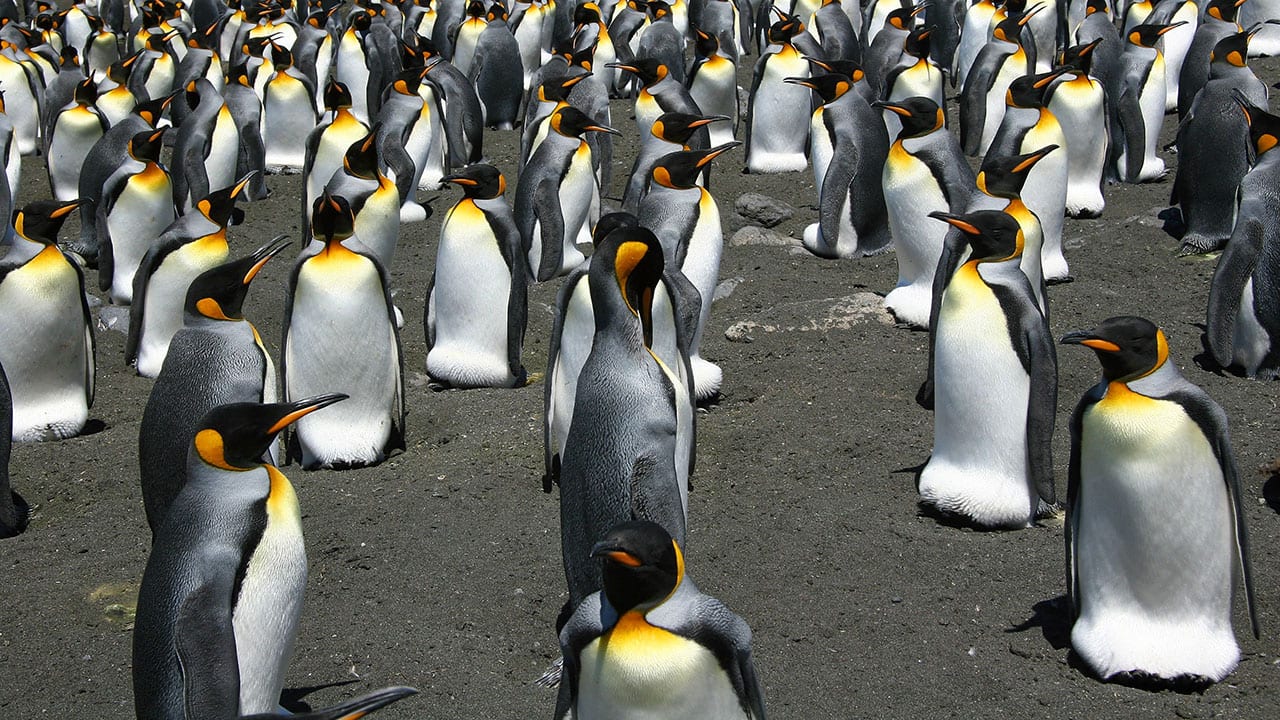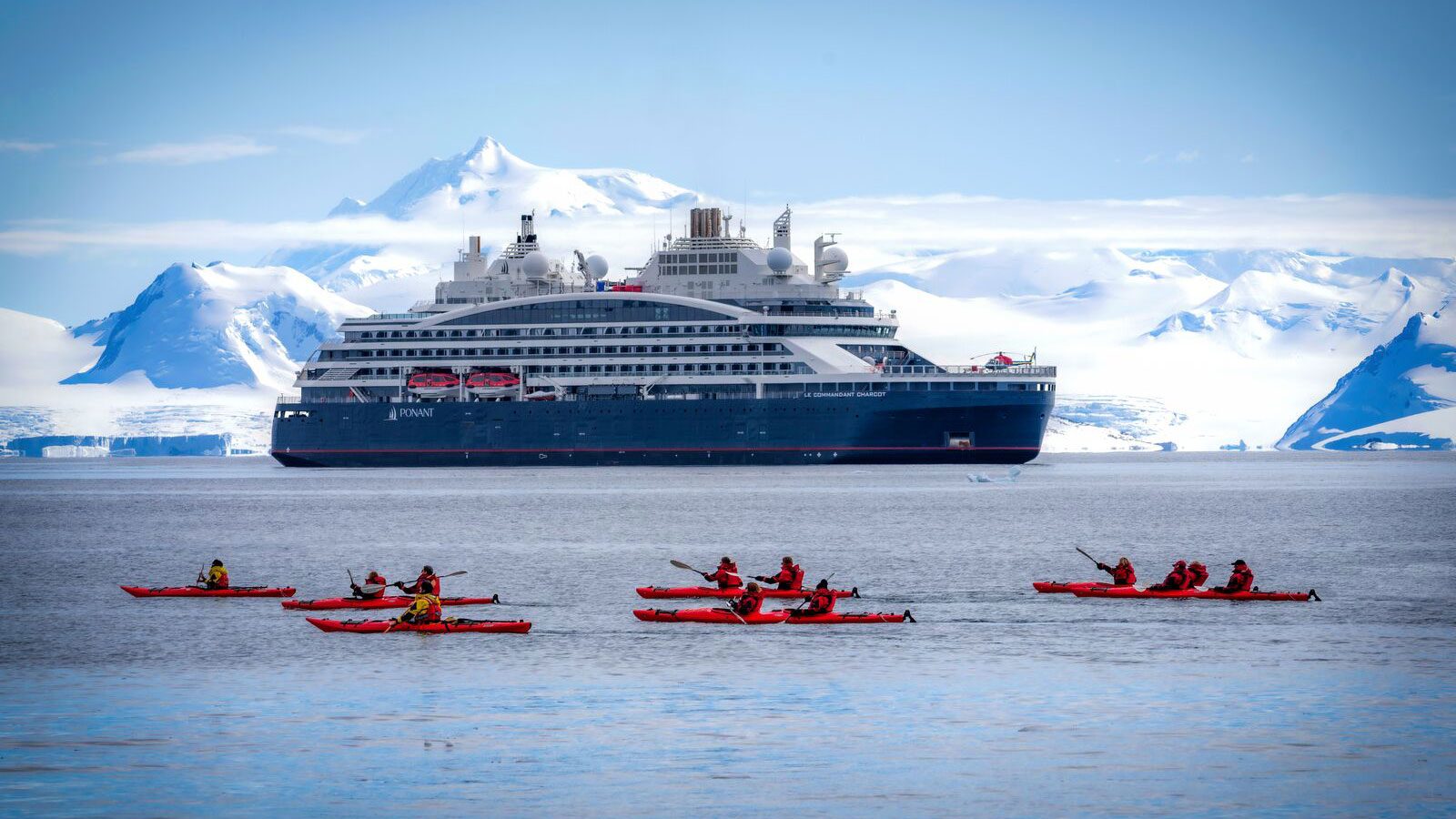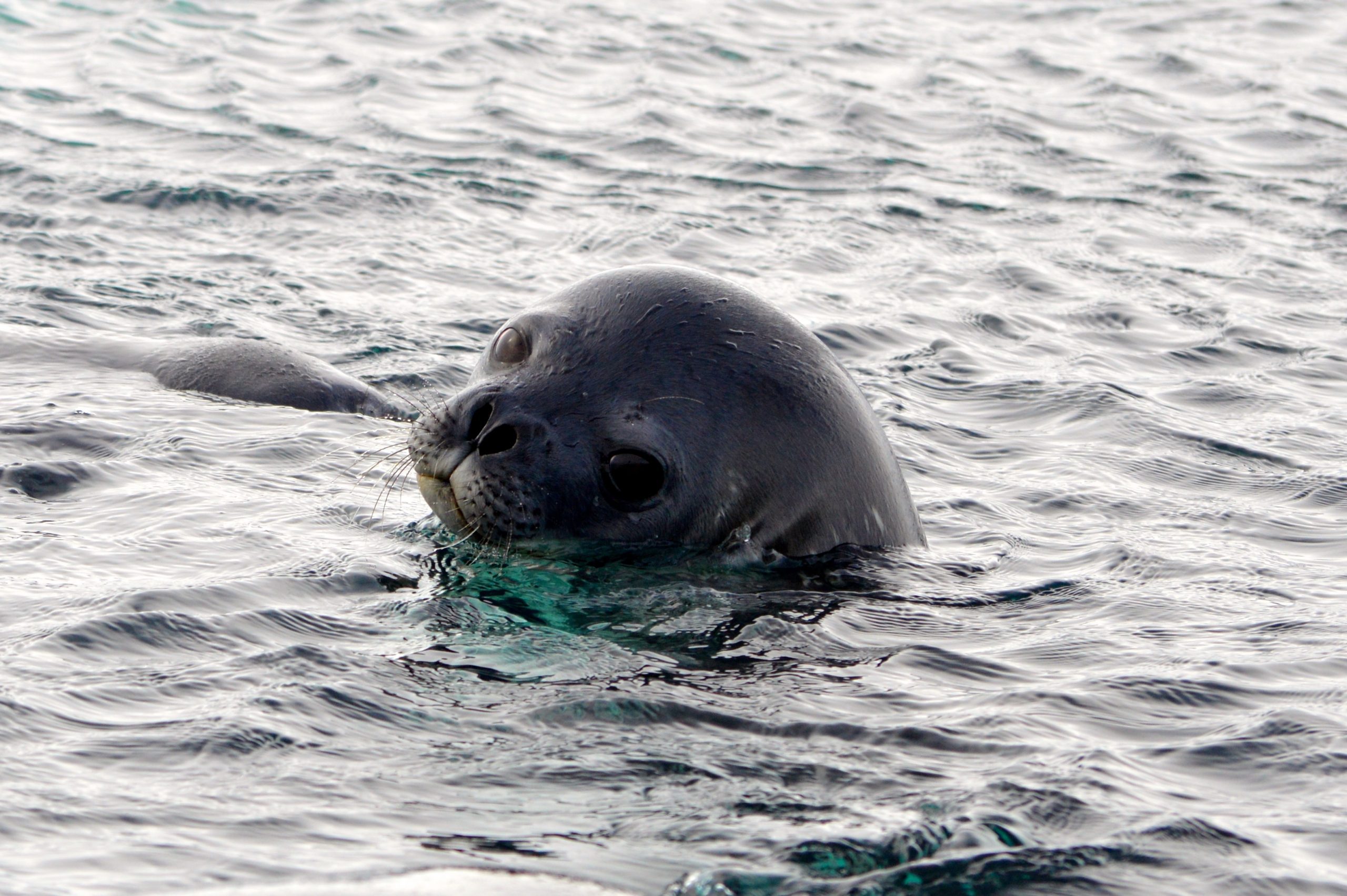News Releases
New study calls for uplisting emperor penguins to threatened on IUCN Red List
Woods Hole Oceanographic Institution among research groups that offer findings to support protection of species
Read MoreResearchers improve satellite surveillance of emperor penguins
New method will provide accurate counts and breeding success of the threatened species in the light of climate change
Read MoreEmperor penguins granted protections under Endangered Species Act
Woods Hole Oceanographic Institution among research groups that offer key findings to support federal protection of species, increasingly under siege by climate change
Read MoreMarine Protected Areas in Antarctica should include young emperor penguins, scientists say
Scientists at the Woods Hole Oceanographic Institution (WHOI) and European research institutions are calling for better protections for juvenile emperor penguins, as the U.S. Fish and Wildlife Service considers listing the species under the Endangered Species Act and the Commission for the Conservation of Antarctic Marine Living Resources (CCAMLR) considers expanding the network of Marine Protected Areas (MPAs) in the Southern Ocean.
Read MoreEmperor penguins, recommended as threatened species under Endangered Species Act
Today, the U.S. Fish and Wildlife Service (USFWS) announced a proposal to list the emperor penguin as a threatened species under the Endangered Species Act.
Read MoreNew Study Finds Emperor Penguins Increasingly Threatened by Climate Change
A new study published today in Global Change Biology provides valuable new data that highlights how species extinction risk is accelerating due to rapid climate change and an increase in extreme climate events, such as glacial calving and sea ice loss.
Read MoreUnless warming is slowed, emperor penguins will be marching towards extinction
Emperor penguins are some of the most striking and charismatic animals on Earth, but a new study from the Woods Hole Oceanographic Institution has found that a warming climate may render them extinct by the end of this century. The study, which was part of an international collaboration between scientists, published Nov. 7, 2019, in the journal Global Change Biology.
Read MoreEmperor Penguins’ First Journey to Sea
The paper, published Jan. 17, 2019, in the journal Marine Ecology Progress Series, also highlights the unique connection between juvenile diving behaviors and a layer of the ocean, known as the thermocline, where warmer surface waters meet cooler deep waters below and where their prey likely gather in groups.
Read MoreAre Emperor Penguins Eating Enough?
For Emperor penguins waddling around a warming Antarctic, diminishing sea ice means less fish to eat. How the diets of these tuxedoed birds will hold up in the face of…
Read MoreFinding New Homes Won’t Help Emperor Penguins Cope with Climate Change
Unlike other species that migrate successfully to escape the wrath of climate change, a new study shows that dispersal may help sustain global Emperor penguin populations for a limited time, but, as sea ice conditions continue to deteriorate, the 54 colonies that exist today will face devastating declines by the end of this century.
Read MoreMelting Sea Ice Threatens Emperor Penguins, Study Finds
At nearly four feet tall, the Emperor penguin is Antarctica’s largest sea bird—and thanks to films like “March of the Penguins” and “Happy Feet,” it’s also one of the continent’s…
Read MoreEmperor Penguins March toward Extinction?
Popularized by the 2005 movie “March of the Penguins,” emperor penguins could be headed toward extinction in at least part of their range before the end of the century, according…
Read MoreHigh Resolution Imagery Advances the Ability to Monitor Decadal Changes in Emperor Penguin Populations
High resolution satellite imagery and field-based validation surveys have provided the first multi-year time series documenting emperor penguin populations.
Read MorePenguins Go Through the Flow
Colonies of breeding king penguins behave much like particles in liquids do, according to new study by the Woods Hole Oceanographic Institution (WHOI) and international colleagues. This “liquid ” organization and structure enables breeding colonies to protect themselves against predators while also keeping members together.
Read MoreStudy Finds Emperor Penguin in Peril
An international team of scientists studying Emperor penguin populations across Antarctica finds the iconic animals in danger of dramatic declines by the end of the century due to climate change.…
Read MorePONANT Explorations Group announces new partnership with Woods Hole Oceanographic Institution
Three-year collaboration to include scientific expeditions, onboard educational programming, and testing of next-generation ocean research technology
Read MoreWeddell seals in the Antarctic strategically time their most extreme dives to maximize foraging
New research from WHOI and partners sheds light on a novel dive foraging strategy.
Read More
